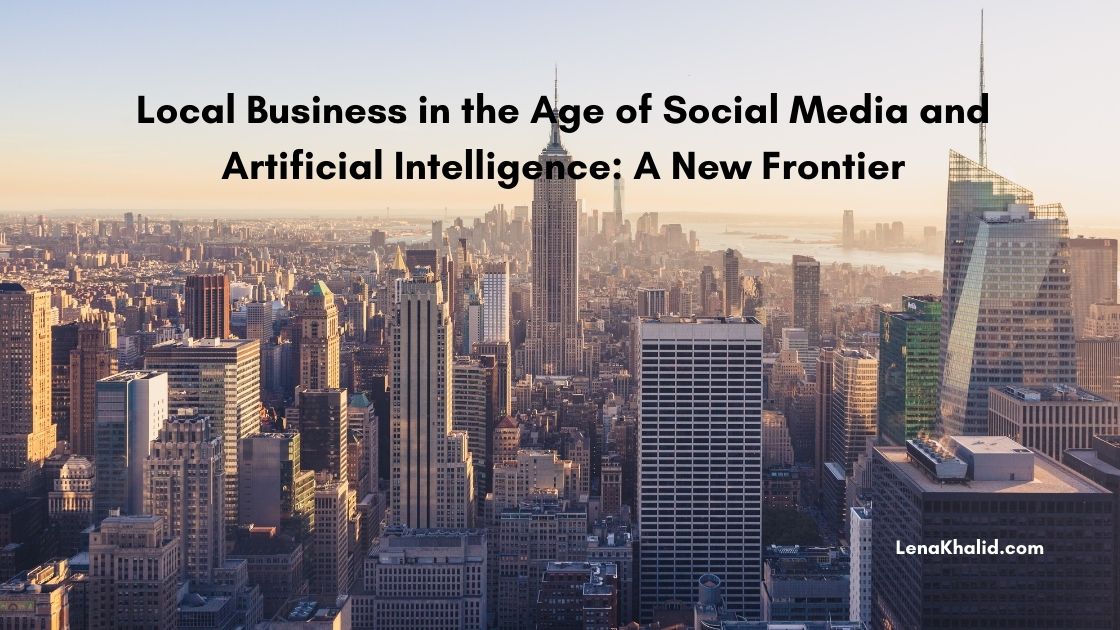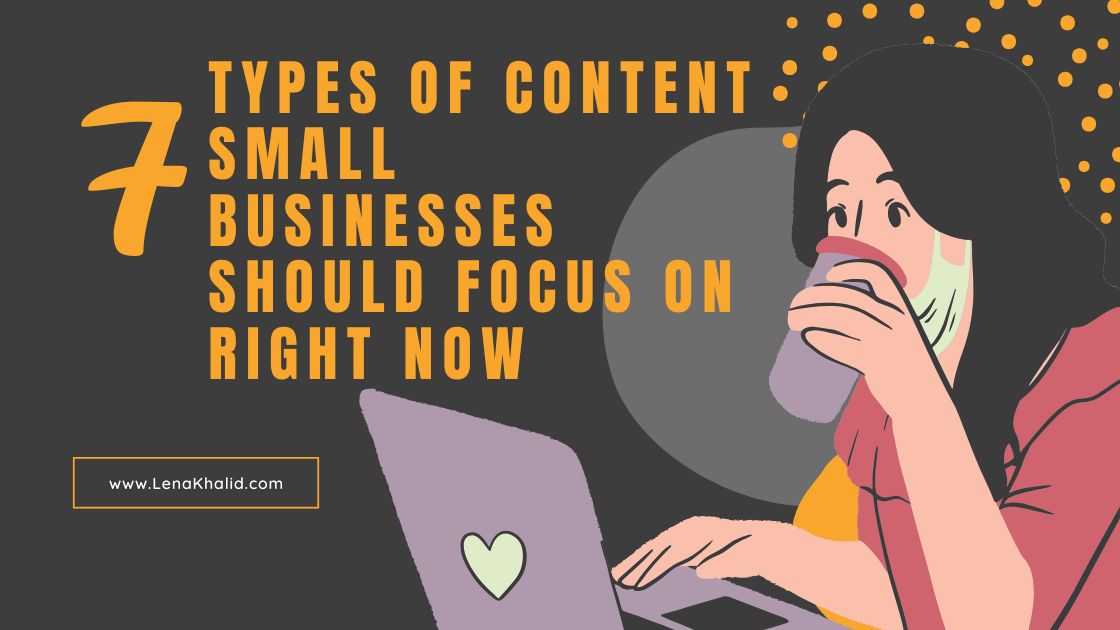
Local Business in the Age of Social Media and Artificial Intelligence : A New Frontier
In today’s hyper-connected digital world, the lines between local and global have blurred. Small businesses that once relied solely on word-of-mouth or foot traffic are now harnessing powerful technologies to reach wider audiences and streamline their operations. Among these tools, social media and artificial intelligence (AI) stand out as transformative forces. Together, they are reshaping how local businesses market themselves, interact with customers, and make decisions.
The Changing Landscape of Local Business
Traditionally, local businesses thrived by serving nearby communities—through physical stores, neighborhood networks, and repeat customers. While this model remains essential, digital transformation has introduced new challenges and opportunities. Consumers now expect businesses of all sizes to maintain an online presence, offer fast responses, and deliver personalized experiences. In this evolving environment, the strategic use of social media and AI is no longer optional—it’s critical.
Social Media : A Digital Lifeline for Local Businesses
Social media platforms like Facebook, Instagram, TikTok, and X (formerly Twitter) have democratized marketing. They offer local businesses a cost-effective way to build brand awareness, engage with customers, and drive sales.
1. Customer Engagement and Community Building
For local businesses, one of the biggest advantages of social media is the ability to create and nurture a community. By posting regular updates, sharing behind-the-scenes content, and interacting with followers through comments and direct messages, businesses can build trust and loyalty.
Restaurants, for instance, often use Instagram to showcase new menu items, run promotions, or feature customer reviews. Retail shops share live videos of in-store events, while service providers like barbers or fitness coaches post transformation stories or tutorials. These activities help turn casual followers into repeat customers.
2. Advertising and Targeting
Social media platforms offer sophisticated ad targeting tools. Local businesses can run paid campaigns aimed specifically at people in their geographic area, demographic profile, or interests. A bakery in Kuala Lumpur, for example, can create an ad for a weekend promotion and ensure it’s only shown to users within a 10km radius who have shown interest in desserts or cafes.
The ability to track performance—through metrics like reach, clicks, and conversions—means businesses can continuously refine their campaigns for better results.
3. User-Generated Content and Reviews
Customer reviews and user-generated content (UGC) are digital word-of-mouth. Encouraging customers to post photos, leave reviews, or tag the business in their stories helps enhance credibility. Positive content shared by real customers carries immense trust and often influences others to visit or make a purchase.
The Role of AI : From Insights to Automation
While social media helps businesses be seen and heard, AI helps them think smarter and operate more efficiently. Artificial intelligence can analyze data, automate tasks, and personalize customer experiences in ways that were previously impossible for small teams.
1. AI-Powered Analytics and Insights
AI tools can sift through massive amounts of data to uncover trends and actionable insights. For instance, a local fashion boutique can use AI-driven analytics to understand which products are trending based on sales patterns, customer preferences, and even weather forecasts.
On social media, AI tools can analyze engagement metrics—such as the best times to post, the types of content that get the most interaction, or sentiment analysis of customer comments—to optimize performance.
2. Chatbots and Customer Service
AI-powered chatbots are revolutionizing how local businesses handle customer inquiries. These bots can answer frequently asked questions, take bookings, confirm appointments, or provide product information—24/7.
For example, a local dentist could use a chatbot on Facebook Messenger to help potential patients schedule consultations, receive reminders, and get answers to common questions. This improves customer experience while freeing up staff time.
3. Content Generation and Personalization
AI tools like ChatGPT or image generators can assist in content creation—from writing social media captions to generating blog posts or promotional images. This helps businesses maintain a steady flow of quality content without hiring large marketing teams.
Moreover, AI enables hyper-personalization. By analyzing customer behavior, preferences, and interactions, businesses can tailor emails, ads, and product recommendations to each individual, increasing the likelihood of conversion.
Case Studies : How Local Businesses Are Winning with Social Media and AI
– A Local Café Using Instagram and AI Scheduling Tools
A small café in Penang increased foot traffic by 35% after implementing an Instagram strategy powered by an AI scheduling tool. By consistently posting at optimal times, using trending hashtags, and responding to DMs via automated scripts, they built a loyal customer base and gained hundreds of new followers.
– A Gym Using Facebook Ads and AI Chatbots
A boutique gym in Johor Bahru ran Facebook ads targeting residents within a 5km radius. They combined this with an AI chatbot that offered a free trial to anyone who messaged the page. The campaign generated over 200 leads in a month, with a 20% conversion rate to paid memberships.
– A Hair Salon Using AI for Review Monitoring
A salon in Selangor used an AI tool to monitor online reviews and analyze sentiment. This helped them identify and respond quickly to negative feedback, adjust service offerings, and even discover which stylists were getting the best reviews. The insights led to improved customer satisfaction and better team performance.
Challenges and Considerations
Despite the advantages, adopting social media and AI comes with challenges:
– Learning Curve : Many local business owners are unfamiliar with how these technologies work. Training or hiring experts may be necessary.
– Consistency: Maintaining a regular online presence requires time and effort.
– Cost: While many tools are affordable, some advanced AI features may involve subscriptions or one-time investments.
Nonetheless, with the right strategy and support, these tools can yield substantial returns.
The Future : Integrating AI and Social Media Seamlessly
Looking ahead, the convergence of AI and social media will only deepen. We can expect more tools that automatically generate personalized ads, suggest content ideas, or even interact with customers in real time using natural language processing. Voice search, augmented reality (AR) try-ons, and AI-generated influencers may also become accessible to local brands.
Small businesses that embrace these innovations will gain a competitive edge—not by abandoning their roots, but by enhancing the personal touch they’re known for with the precision and scalability of technology.
The synergy of local business, social media, and AI presents a powerful opportunity. When used wisely, these tools empower even the smallest enterprises to punch above their weight, connect meaningfully with customers, and adapt quickly to changing market dynamics.
In a world where attention is currency and personalization is expected, businesses that combine local charm with digital intelligence will be the ones that thrive.










